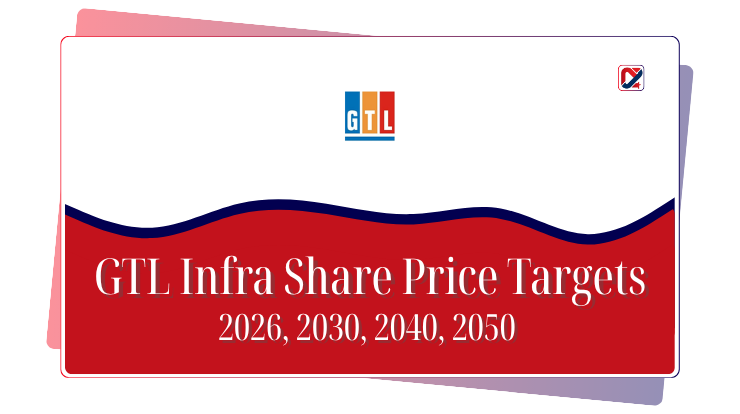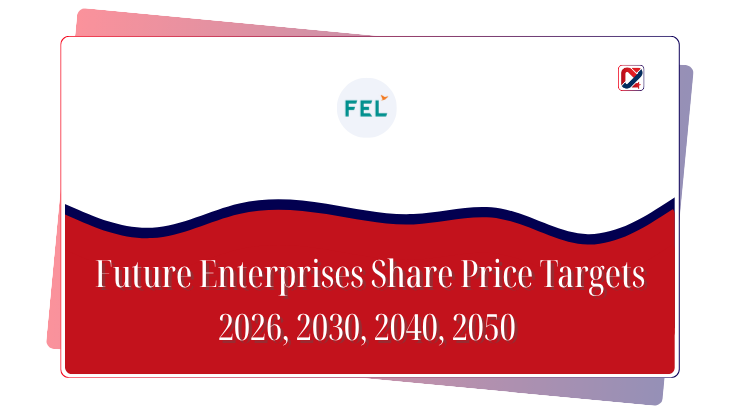Vodafone Idea Ltd (Vi), formed in 2018 through the merger of Vodafone India and Idea Cellular, is one of India’s major telecom operators. Despite having a vast subscriber base and extensive network infrastructure, the company has faced severe financial stress due to high debt, intense price competition, and the government’s adjusted gross revenue (AGR) dues. Vi continues to operate across mobile, broadband, and enterprise services while attempting financial restructuring and network expansion. In recent months, investor focus has been on debt reduction, potential equity infusion, and consolidation in India’s telecom sector. This article provides a comprehensive overview of Vi’s business, historical performance, growth drivers, risks, and scenario-based share price targets for 2026, 2030, 2040, and 2050.
Table of Contents
Vodafone Idea Ltd (Vi) was created in August 2018 by merging Vodafone India and Idea Cellular, becoming India’s second-largest telecom operator by subscriber base at the time. The company provides mobile services, broadband, and enterprise solutions across India, with coverage in both urban and rural markets.
Since the merger, Vi has struggled with financial stability due to accumulated debt, regulatory liabilities under the AGR verdict, and aggressive competition from Reliance Jio and Bharti Airtel. Recent strategic efforts focus on network modernisation, 4G/5G rollout, and operational consolidation.
This article examines Vi’s business fundamentals, growth prospects, and key risks, and presents scenario-based share price targets for 2026, 2030, 2040, and 2050, highlighting potential outcomes under different assumptions.
Company Overview
| Aspect | Details |
|---|---|
| Founded | 2018 (Merger of Vodafone India & Idea Cellular) |
| Promoter Group | Aditya Birla Group & Vodafone Group Plc |
| Listed On | NSE & BSE |
| Headquarters | Mumbai, Maharashtra, India |
| Business Segments | Mobile & Data Services, Broadband, Enterprise Solutions |
| Subscriber Base (2025) | ~200 million |
| Debt (2024) | Approx. ₹1.9 lakh crore (including AGR dues) |
| Recent Strategic Moves | Rights issue, equity infusion, 5G spectrum rollout, network modernization |
| Current Phase | Turnaround and consolidation |
Vi’s operations are focused on subscriber retention, digital services expansion, and cost rationalisation to stabilise financials and position for long-term sustainability.
Historical Performance & Metrics
| Fiscal Year | Revenue (₹ Cr) | Net Profit / Loss (₹ Cr) | Remarks |
|---|---|---|---|
| FY2018–19 | 41,470 | -7,155 | Initial merger integration |
| FY2019–20 | 38,200 | -11,900 | Heavy AGR dues, operational challenges |
| FY2020–21 | 38,500 | -14,200 | Ongoing losses, pandemic impact |
| FY2021–22 | 41,000 | -6,000 | Debt restructuring support, improved cash flow |
| FY2022–23 | 44,000 | -3,500 | Rights issue & partial government support |
Key Points:
- Revenue shows moderate stability, but profitability remains negative.
- Promoter holding: ~27% (Aditya Birla Group), Vodafone ~45%.
- Subscriber churn remains high; capital expenditures for 4G/5G are significant.
Key Assumptions for Forecasting
Growth Drivers
- Completion of 5G rollout and monetisation of digital services.
- Debt restructuring and government support are improving financial flexibility.
- Market consolidation is reducing competitive pressure.
- Increased adoption of mobile broadband and enterprise solutions.
Risks
- High debt levels remain a key concern.
- Regulatory changes, spectrum renewal costs, and AGR liabilities.
- Strong competition from Bharti Airtel and Reliance Jio.
- Subscriber loss and pricing pressures.
Baseline Assumption
Vi stabilises EBITDA margins to 15–20%, continues subscriber growth, and gradually becomes profitable by FY2028–29.
Vi (Vodafone Idea) Share Price Target Forecasts
| Year | Bear Case | Base Case | Bull Case | Key Assumptions |
|---|---|---|---|---|
| 2026 | ₹3.00 | ₹8.00 | ₹15.00 | Rights issue successful, moderate subscriber growth |
| 2030 | ₹6.00 | ₹20.00 | ₹35.00 | 5G adoption ramps, market consolidation reduces pricing pressure |
| 2040 | ₹15.00 | ₹40.00 | ₹75.00 | Strong enterprise & digital revenue, healthy cash flows |
| 2050 | ₹30.00 | ₹80.00 | ₹150.00 | Vi becomes a major telecom & digital services leader in India |
Analysis:
- 2026 Outlook: Stabilisation phase; base case assumes modest profitability post-restructuring.
- 2030 Outlook: Digital services and 5G network expansion drive substantial value; EBITDA margins rise above 18%.
- 2040 Outlook: Strong brand, diversified revenue, and strategic partnerships increase valuation.
- 2050 Outlook: Vi becomes a leading telecom & tech player in India; shareholder value grows significantly.
Note: These are illustrative scenarios, dependent on execution, regulatory support, and macroeconomic conditions.
Growth Drivers & Catalysts
- 5G Deployment: Revenue from enhanced mobile broadband and enterprise services.
- Digital Services: Streaming, IoT, cloud services, and mobile payments.
- Debt Restructuring: Reduces interest burden and frees cash for growth.
- Market Consolidation: Fewer competitors can improve pricing power.
- Subscriber Growth: Rural and semi-urban expansion enhances scale economics.
Risks & Challenges
- Ongoing high debt levels and interest obligations.
- Aggressive competition is impacting ARPU (average revenue per user).
- Reliance on government approvals for spectrum and regulatory relief.
- Operational risk in executing 5G and digital services rollout.
- Market sentiment is sensitive to quarterly losses.
Expert & Market Sentiment
- Analysts view Vi as a turnaround story with high execution risk.
- Recent rights issues and equity infusion indicate promoter and government support.
- Investors monitor 5G rollout and subscriber metrics closely.
- Online forums note caution due to negative earnings history, but long-term upside is discussed under the base/bull cases.
FAQs
What is Vodafone Idea Ltd?
It is a major Indian telecom operator formed by the merger of Vodafone India and Idea Cellular.
Is Vodafone Idea profitable?
Currently, the company is gradually reducing losses and aims for positive EBITDA by FY2028–29.
What are the risks of investing in Vodafone Idea?
High debt, regulatory challenges, competition, and subscriber churn are key risks.
What would need to happen for Vodafone Idea to reach ₹35 by 2030?
Successful 5G rollout, stable subscriber base, reduced debt burden, and strong enterprise/digital revenue.
Does Vodafone Idea pay dividends?
Currently, the company is not paying dividends due to debt obligations and restructuring.
.
Conclusion
Vodafone Idea Ltd represents a challenging yet potentially rewarding telecom turnaround. The company has substantial infrastructure, subscriber base, and market presence, but financial stress and regulatory burdens remain major hurdles.
The Vi share price targets—ranging from ₹3 in the bear case (2026) to ₹150 in a bullish 2050 scenario—are purely speculative and dependent on execution, market conditions, and regulatory outcomes. Investors must conduct due diligence and assess their risk appetite before considering any position in Vi.
Disclaimer: The share price targets mentioned are speculative and for informational purposes only. This article does not constitute financial or investment advice.



